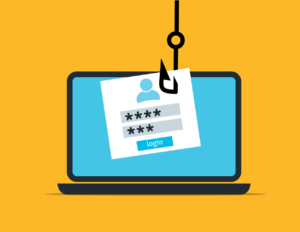
Within the last few years, social media phishing has jumped by 500%. In addition, the number of fraudulent social media accounts has doubled.
It’s easier to trick people over social media because people aren’t thinking of scams while they’re socializing with their friends. We let down our guard on platforms like Facebook, Instagram, LinkedIn, and Twitter. We believe we know who we’re interacting with.
Social media doesn’t feel like being out in public when we’re sitting in our own homes. Still, it is a public forum, and scammers show up in droves. They reach out to us with friend requests and direct messages, often using funny memes or questions to make themselves approachable. Today, we’ll go over six ways to avoid social media scammers.
Set Your Profile To “Private” On Social Platforms
When your profile is set to public, phishing scammers can gather all the info you put out there. They can use that to clone your profile and put up a fake page to get your connections, too.
Scammers want to connect with your friends list, because they don’t just want you alone. They want as many people as they can get. Your friends and connections will click accept because they believe it’s you. We’ve all see it happen, one of our friends will announce they’ve been cloned and to not accept friend requests.
The best way of limiting your risk here is to make your profile private, so only your connections can see it. Then, the only people who can see your images and posts are your friends and connections. The general public can’t access them.
Some sites, such as LinkedIn, don’t lend themselves to that as much. People are trying to network for business, we need more visibility. So, there, it would be better to keep a public profile and follow the other tips on this list to reduce the risk.
Set Your Friends And Contacts List To Private
If you hide your friends and contacts, social media phishers won’t be able to use your profile to get to others. This makes you a less attractive target. These people are predators, they’re looking for easy prey. Both LinkedIn and Facebook give this privacy option.
Know, thought, that scammers can still see you as a friend or connection on other people’s profile unless they have also set their list to private.
Direct Links Sent Over Social Media Are Dangerous
Tempting direct links offer the easiest method of delivering phishing attacks on social media. Multiple platforms use link shorteners, making it difficult to see the redirects until the clicker gets there. Clicking links on social media platforms is dangerous.
Scammers often chat people up on LinkedIn to ask about business offerings, and then give a link to their website. Unless you’re sure the link is legitimate, never click links in direct messages or social media posts. They often lead to phishing sites that drive-by download malware onto a smartphone or computer.
Even if you know the connection who shared the meme, that doesn’t make the link safe. People often share posts in their own feeds because they like it or think it’s funny. That doesn’t mean they researched all the links embedded for safety.
Avoid Social Media Surveys And Quizzes
Those surveys and quizzes are designed to draw people in. It’s fun to find out which flower you are or what your name says about you, but they’re all gathering data. Marketing companies often use that data for market segmentation purposes. Scammers use the same data for targeting their identity theft and phishing attacks.
The Cambridge Analytica scandal happened recently. Millions of Facebook users saw their data impacted to one degree or another. During the investigation, it came out that the company used surveys and quizzes to collect user information without consent.
That was a high-profile case, multiple companies play fast and loose with user data. These companies take advantage of social media as much as they possibly can.
Today, those surveys and quizzes give you a quick flash of what they’re collecting from you, but most people don’t understand exactly how much data they’re just giving away. Once given, it can’t be gotten back. Avoid them.
Never Purchase Directly Through Ads On Social Media
Plenty of legitimate companies advertise on social media. We’re one of them. Unfortunately, scammers use social media advertising for credit card fraud and identity theft as well. Some people are why we can’t have nice things.
If you see something you want on a social media ad, go to the company’s website directly to check it out. Do not click through the social media ad to purchase and pay for the product.
Don’t Accept Friend Requests Without Research
Humans socialize. We like getting new friend requests. Could be a new business opportunity, could be someone from our college, who knows? Could be a false account, too. Check out the person’s profile before just accepting that request.
If the account is young, doesn’t have any real posts, lots of pictures, or is one-dimensional, don’t accept it.
Make Sure Your Device Can Handle A Phishing Link
Antiviral programs, DNS filtering, email filters, and browser safeguards can all help keep phishing links from getting a foothold on your device. Make sure you keep those up to date.
Thanks for reading today! Ready to upgrade your business phone experience? Get a quote today, or call us at 866-550-0005 to find out what kind of secure business telecom system we can offer you.